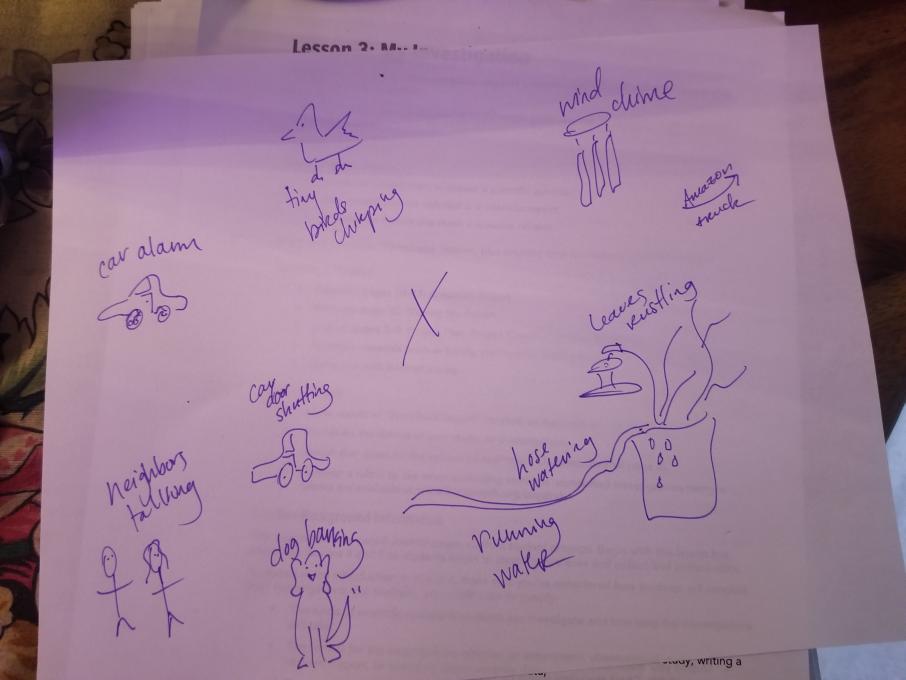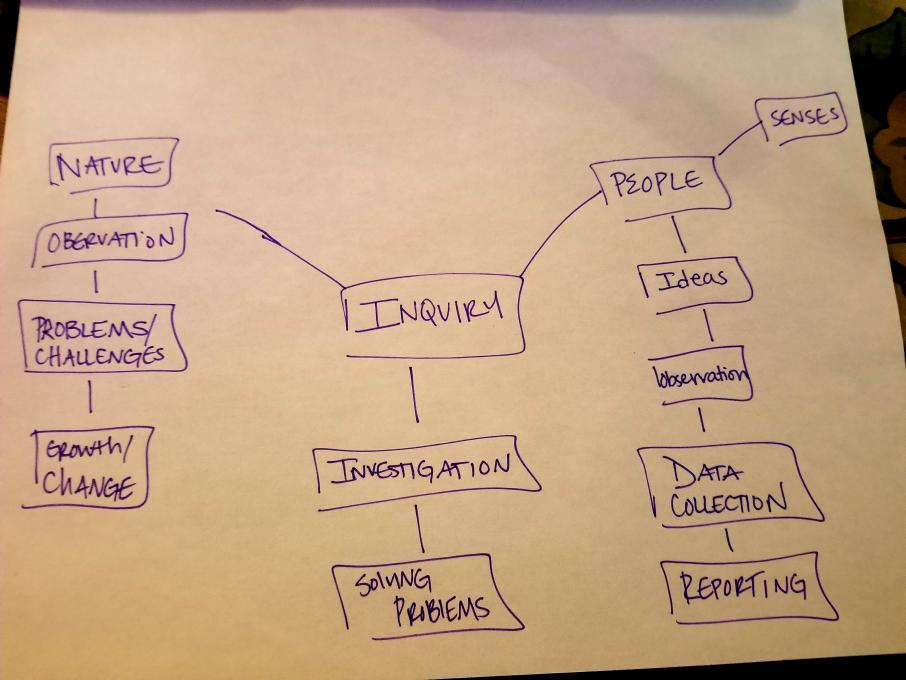Spryte
Forum Replies Created
Viewing 10 posts - 1 through 10 (of 10 total)
-
SpryteParticipantAt my school we use choice boards and/or allow students to choose how they want to demonstrate what they have learned. Some make videos, posters, or art projects, while others prefer to write reports and essays. To save my own time on making different rubrics I often like to present three-four different types of projects that students can choose from. I also like to assign group projects as my students often struggle with social skills. Each student from each group chooses their "job" for the project and they have to check in with each other throughout the process. They also have to edit each other's work before turning in a final project.in reply to: Sharing Student Projects #826305
-
SpryteParticipantI chose to research Project Budburst. This program allows students, teachers, classes, and families track plant and animal life cycles and help researchers better learn how humans affect the environment. The data is accessible to anyone who signs up for a free account. The data is easily accessible and looks like it is very relatable and understandable for all. Anyone can use the data for further exploration and personal projects, which is especially why I like this program. My students can use the data for their own investigation and research. My students can use the data to gain a better understanding of the natural world within their community. We are located in downtown San Francisco, where it can be hard to notice the environment with all of the traffic, people, noise, and buildings. Using the data from Project Budburst can first help my students understand what to look for before we go out and explore ourselves.in reply to: Data Literacy Through Citizen Science #826300
-
SpryteParticipantI try to encourage my students to ask as many questions as possible, and remind them that there are no stupid questions and that we should all support each other in the learning process. I also like to ask open-ended questions, and will try to answer a question with a question. I encourage my students to ask questions of each other as much as possible or to look their questions up before coming to me so it helps them get in the habit of doing their own research.in reply to: Launching Investigations #825156
-
SpryteParticipantAs many other people stated below, I think modeling is the best way to foster wonder and curiosity in my students. By allowing myself to wonder out loud I can model the inquiry process, which in turn will hopefully be a positive example to my students.in reply to: Supporting Open-ended Questions #824969
-
SpryteParticipantJust taking the time to sit without technology and listen was so impactful. I think this will be an awesome activity at the beginning of the year in my science class to help students understand that the
 ir instincts are what will help make them great scientists. in reply to: Encouraging Observations #824817
ir instincts are what will help make them great scientists. in reply to: Encouraging Observations #824817 -
SpryteParticipantMy school is downtown San Francisco, so we are in a concrete jungle with little access to nearby parks. I think, if I can get approval for half or full day field trips, I will have my students use Ebird and Budburst to help them observe what they see (as mostly what they observe are cars and people). I also plan on using an "I Wonder" board to help my students ask questions before we go outside to observe, to help them organize their thoughts a bit better.in reply to: Linking Citizen Science & Inquiry #823936
-
SpryteParticipantI, like other contributors to this thread, love the idea of helping students think like or see themselves as scientists. I was never good at math, so I always thought growing up that I couldn't be a scientist, even though I really love science. If I was able to see myself as a scientist based on activities that didn't involve math, I think I would have been more motivated to pursue the field of science as more than a hobby. I now teach science at a school for students with learning differences. So, many of them struggle with either reading/writing and/or math. Helping my students understand that they too can be a scientist through different citizen science activities will definitely help build their confidence in a variety of ways and academic subjects.in reply to: Citizen Science in Your Classroom #823932
-
SpryteParticipantI haven't worked with any citizen science projects specifically. While my classes do research and conduct experiments, we don't report our findings to anyone. I plan on implementing one citizen science project a quarter, hopefully a month, into my science classes based on the topics we are learning about. It would be great to work projects into my curriculum so students become familiarized with the term citizen science and what it expected of them and their projects as they progress to different grade levels in our school. As the Science Curriculum Coordinator for our middle school, I plan on working at least four citizen science projects into our curriculum for each grade, so when students graduate from our 8th grade class they will have participated in a variety if citizen science projects.in reply to: Intro to Citizen Science #823777
-
SpryteParticipantBefore the pandemic my science class explored how much food our students, faculty and staff wasted each day after lunch. They wanted to know how they could help our school be more "green". I asked them to come up with a process and present it to me for helping our school be more "green". They worked in groups to come up with a presentation for our head of school to ask for compost bins for our school. They took turns at lunch collecting food that was to be thrown away and weighing the food (in garbage bags). They collected data and estimated how much food is wasted every day, week, month, and school year on average. They then took pictures and created a video presentation for our head of school presenting the information and how compost bins will benefit our school waste problem. The head of school said yes! And the school paid for compost bins around the school. I believe this is inquiry level 4 - Open Inquiry as students asked the questions, and came up with the procedures. I think my students practiced data analyzing and observation.in reply to: Inquiry in Your Classroom #823776
-
SpryteParticipantTo me, inquiry is the process of exploring and questioning the world around you. Students, adults, families, elders, anyone who takes notice about the natural world around them and thinks about why things occur the way they do, how they can be changed or altered, how they can solve a problem, and using their senses to engage in the world around them are all part of the inquiry process.
 in reply to: Intro to Inquiry #823775
in reply to: Intro to Inquiry #823775
Viewing 10 posts - 1 through 10 (of 10 total)
 ir instincts are what will help make them great scientists.
ir instincts are what will help make them great scientists. 